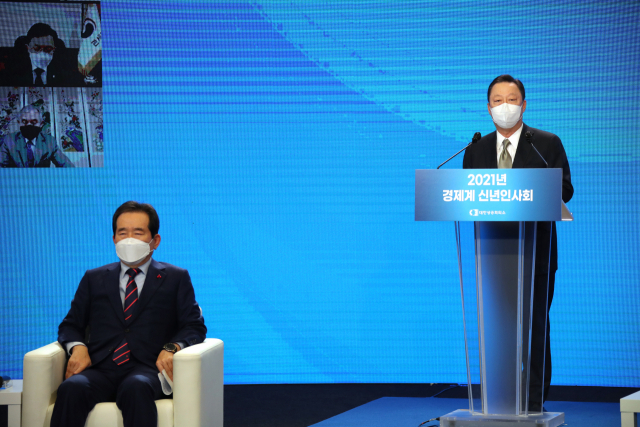Announcement of the results of the survey on the 21st legislative direction of the National Assembly
Future generations put’improving economic vitality’ as their top priority,
The National Assembly focuses on improving workers’ rights and corporate governance
 viewer
viewer
A survey result showed that the legislative activities of the National Assembly, representing the public opinion, are moving in a direction contrary to the perception of future generations.
According to the results of the Korea Chamber of Commerce (Chairman Park Yong-man) surveyed about 300 youths in their twenties and announced the ’21st National Assembly legislative directions’ on the 19th, four out of 10 future generations became the top legislative task and’improving economic vitality (42.5%). )’. ‘Improvement of workers and consumers’ rights and interests (26.0%)’,’Improvement of welfare for the underprivileged (15.3%)’, and’improvement of corporate governance and commerce practices (13.5%)’, which were focused on last year’s activities of the National Assembly, were relatively subordinated. appear.
However, legislative activities related to’improving economic vitality’ were limited to incentives for U-turn companies to overcome the novel coronavirus infection (Corona 19), tax support related to investment, and other important laws such as the service industry development and new business innovation support legislation. It continued to be delayed. In particular, laws that could reduce economic vitality, such as △restriction of voting rights when selecting audit committee members (Commercial Law) △Strengthening regulations on cooperative transactions between companies (Fair Trade Act) △Strengthening punishment for employers (Severe Accident Punishment Act) △Allowing dismissal to join the union (Labor Union Act). Many passed.
As a problem with the current legal system, 94.8% of future generations pointed out that it is’old’ (it does not reflect the changes of the times such as the 4th industrial revolution), followed by 89.6% of the’rooftop style excess regulation’ (instead of strengthening law enforcement whenever a problem arises) New regulations will be newly established) and’Insufficient legislative impact assessment’ (there is a tendency to legislate only with the purpose without reviewing and supplementing side effects when the new law is introduced) (multiple responses).
88.7% of’Positive legal system restricting new business’ (a legal system where new business is possible only with an underlying law) received a high consensus of 88.7%, and’Regulations to be entrusted to voluntary norms are also regulated (85.3%)’, and’Model companies that obey laws well are uniform. Issues such as’regulation (73.1%)’ also received high sympathy.
The solution to economic and social problems also differed between the perception of future generations and the legislative trend of the National Assembly. Future generations preferred’debate on supplementary legislation after strict enforcement of the existing system (53.2%)’ over’solving problems with new legislation (46.8%)’ as a solution to the problem.
On the other hand, the National Assembly responded with new legislation such as the enactment of the Severe Accident Punishment Act without sufficient discussion on practical measures such as establishment of a disaster prevention system, in a situation less than a year after enforcement of the Industrial Safety Act to prevent industrial accidents (March 2010). There is a bar.
As for the labor union-related system, it is desirable for 57.5% of future generations to adjust both’actions permitted under global standards (e.g., dismissed persons and unemployed persons joining the union)’ and’actions that are not permitted (e.g. occupational occupation)’ in accordance with global standards. Despite responding, the actual legislation was revised to reflect only 21.4% of the respondents in the legislation. For reference, 21.1% of respondents said,’Let’s reflect in legislation only acts that are not permitted by the union.’
“We plan to monitor whether the legislative activities of the National Assembly are faithfully meeting the expectations of future generations and citizens,” said Jung Bum-sik, head of the regulatory innovation team of the Korean Chamber of Commerce. “This time, we surveyed 20s and expanded them to their 30s and 40s. We plan to do regular research every year.
/ Reporter Jeon Hee-yoon [email protected]
< 저작권자 ⓒ 서울경제, 무단 전재 및 재배포 금지 >
